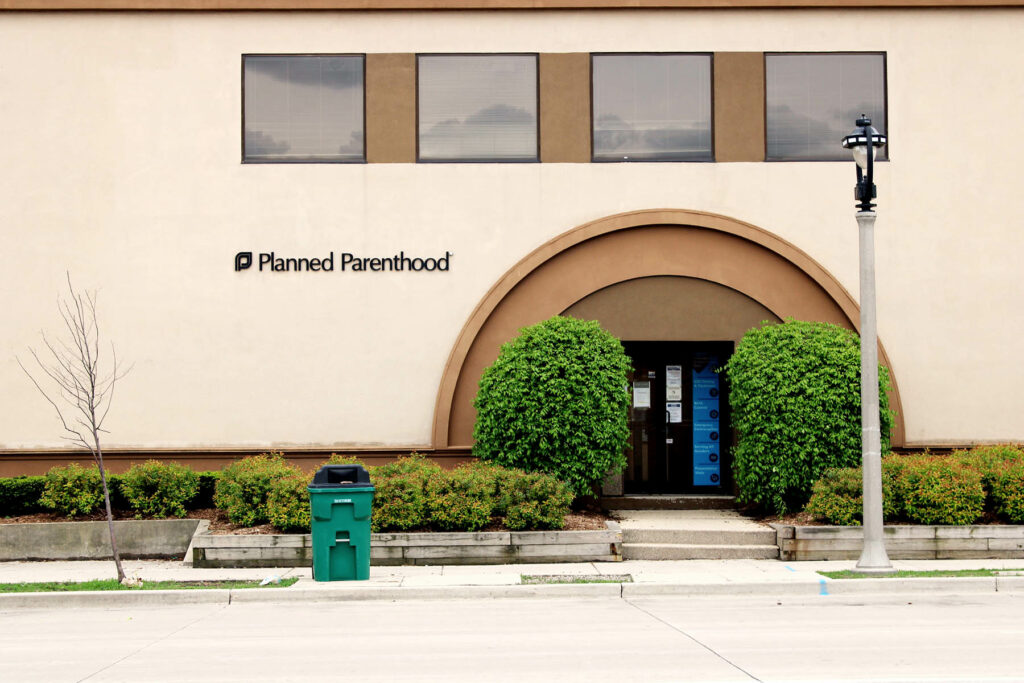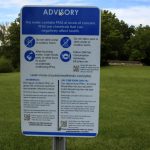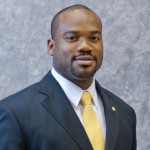Women of Color Would Be Most Impacted by Roe Reversal
Planned Parenthood data shows majority of abortions in Milwaukee County went to women of color.

Leaders of Planned Parenthood say the organization is “100% committed” to providing support for those seeking out-of-state abortions, including transportation assistance, guidance on receiving care and child care services if needed. Photo by Matt Martinez/NNS.
If abortions were banned in Wisconsin today, Milwaukee County and its residents of color would be strongly impacted, statistics suggest.
Milwaukee County had the most abortions in the state from 2018 to 2020, according to the latest data available from the state Department of Health Services. In that three-year span, the county saw an average of 2,969 abortions completed. An average of roughly 1,500 abortions per year in that period were within the Black community, accounting for over half of the totals.
Access to abortion services could face a serious threat in the coming month.
A leaked draft opinion from Supreme Court Justice Samuel Alito released in early May indicates that the court may overturn Roe v. Wade in a decision expected by the end of June. This would allow states to determine the legality of abortion for themselves. Roe v. Wade is the landmark high court decision that legalized abortion services across the United States in 1973.
Amplifying the effect of dismantling Roe v. Wade, some states have “trigger laws” that would go into effect immediately if Roe is overturned. In Wisconsin, the state’s 1849 abortion ban would be automatically reinstated without action from the state legislature. And the state’s politics currently do not provide the environment that suggest compromise
Under the ban, health care workers could be prosecuted for providing abortions. The ban does not prosecute women who receive services.
In addition, as abortion access is threatened in Wisconsin, Illinois is poised to become an island for abortion services in the Midwest, setting the stage for an influx of those seeking services.
Sarah Noble, founder and principal partner of the BeNOBLE Group, an organization that focuses on health and wellness for community leaders, worries about long wait times and services getting overrun in states where abortion remains legal. Those seeking care will need help getting it, she said.
Making a ‘complicated life more complex’
Noble was also the founder and managing director of the Reproductive Justice Collective, an organization no longer active that was a collective of women of color and others that advocated for reproductive health issues. She said the potential abortion ban could “make a complicated life more complex” for women in the city who are already facing economic and health disparities, particularly Black women.
“It’s not as though everything else in the world will shift because of this,” Noble said. “It doesn’t mean more access to child care, more access to health care or safer neighborhoods for someone who already doesn’t want a child.”
Gracie Skogman, legislative/PAC director of Wisconsin Right to Life, an advocacy group, said that if the ban were to occur, the need to support pregnant women facing hardships would become even more vital.
Ultimately, she said, the group hopes to make a society where women do not need to consider abortions as an option.
Noble said there was a need for everyone in the community to get involved with ensuring access to services — not just reproductive justice leaders. She said that this wasn’t just an abortion issue and could signal a shift to other rights being taken away, she said.
“It’s unconscionable that someone would even have to think about that when they have a pregnancy they don’t want,” Noble said.
Michelle Velasquez, director of advocacy and services for Planned Parenthood of Wisconsin, said the organization is “100% committed” to providing support for those seeking out-of-state abortions, including transportation assistance, guidance on receiving care and child care services if needed.
Velasquez said a ban on abortion would affect communities with pre-existing health inequities even more, including low-income and rural communities and communities of color.
“In Milwaukee, for example, we already have really high maternal and infant mortality rates that are affecting the Black community more than others,” Velasquez said.
Wisconsin’s challenges
Velasquez said the state already faces challenges with restrictive access to abortion. Obstacles such as a 24-hour waiting period, a restriction on telehealth consultations and a lack of sick leave from employers already hinder women in the state from receiving services.
“Those are some of the reasons why it’s already just not a reality for a lot of people,” Velasquez said. “These restrictions always affect the communities who face the most health inequities.”
Skogman said, “As pro-life individuals, our role has always been to uplift women with challenging and unexpected pregnancies.”
She added: “The reality is there are women in need of resources, medical support and housing in this state.”
Where to find reproductive health resources
To find a Planned Parenthood clinic near you, visit its website and enter your ZIP code, city or state.
To schedule an appointment by phone, call 800-230-7526. You’ll be asked for your ZIP code and date of birth. Services are also available in Spanish.
There are locations around the city:
Planned Parenthood Wisconsin Avenue Health Center, 2207 W. Wisconsin Ave.
Planned Parenthood Mitchell Street Health Center, 1710 S. 7th St., Suite 300
Planned Parenthood Capitol Drive Health Center, 801 E. Capitol Dr.
Planned Parenthood Northwest Health Center, 5380 W. Fond du Lac Ave.
Planned Parenthood Water Street Health Center, 435 S. Water St.
You can also schedule an appointment online on the Planned Parenthood website.
The Milwaukee Health Department’s Keenan Health Center offers free condoms and emergency contraceptives. It is located at 3200 N. 36th St. It can be reached at 414-286-8840.
Milwaukee, women of color, would disproportionately feel effects if Roe v. Wade is overturned was originally published by the Milwaukee Neighborhood News Service.





















